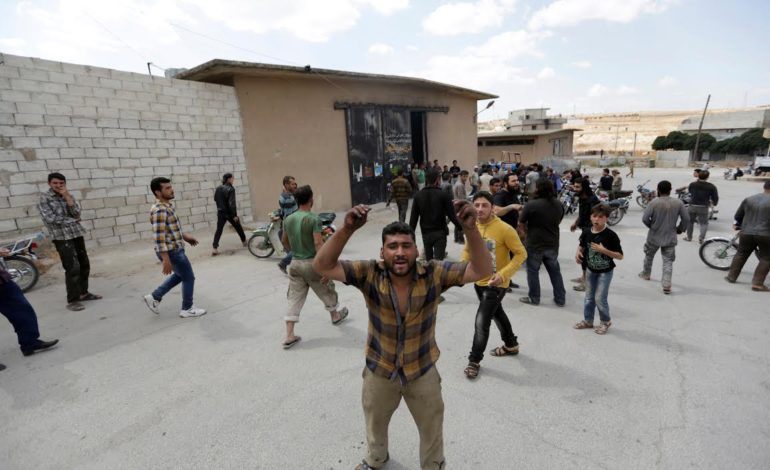
VIENNA — Extremist militants in Syria including al-Qaeda are mobilizing again for all-out war against President Bashar al-Assad, taking advantage of the collapse of peace talks to eclipse nationalist rival insurgents that signed on to a faltering truce.
Al-Qaeda’s Syrian branch, the Nusra Front, was excluded from a ceasefire put in place in February and from peace talks that followed. The talks broke up last month, with Assad’s government and foes blaming each other for military escalation.
After lying low in the early days of the truce, Nusra has re-emerged on the battlefield as the diplomacy has unraveled, spearheading recent attacks on pro-government Iranian militias near Aleppo, Nusra commanders and other rebels say.
In the latest expansion of its profile, Nusra and other groups have revived the Jaish al-Fatah, or the army of conquest, a military alliance of disparate Islamist rebel groups that won big victories against government forces last year.
The Islamist rebels still face the challenge of overcoming their own rivalries. One senior insurgent source said that while Jaish al-Fatah had made a comeback in one area, talks were still underway to relaunch the alliance more widely.
“In southern Aleppo, yes there is an operations room, but the goal is (to repeat it) on all the active fronts,” he said.
The insurgency against Assad is a patchwork of factions ranging from groups linked to al-Qaeda or inspired by it, to those with a nationalist agenda that fight under the banner of the Free Syrian Army. Some of these groups have received military aid from the United States, Turkey, and Saudi Arabia.
ISIS, which broke away from al-Qaeda, is in conflict with both other insurgent groups and Damascus as it fights for its self-declared caliphate in Syria and Iraq. It has lost territory in recent months but still controls much of eastern and northern Syria.
Major power foreign ministers failed to agree a new date to resume Syrian peace talks at a meeting on Tuesday, and the opposition said it would not come back to Geneva negotiations unless conditions improved on the ground.
Noah Bonsey, a senior analyst with International Crisis Group, said the re-emergence of Jaish al-Fatah was an indicator of the political climate in the opposition and its realization that the cessation of hostilities was not sustainable.
The resumption of fighting was good for Nusra, he added: “This is giving them credibility, whereas the cessation appeared to be diminishing their credibility and highlighting real rifts between Nusra and the rest of the rebellion.”






Leave a Reply